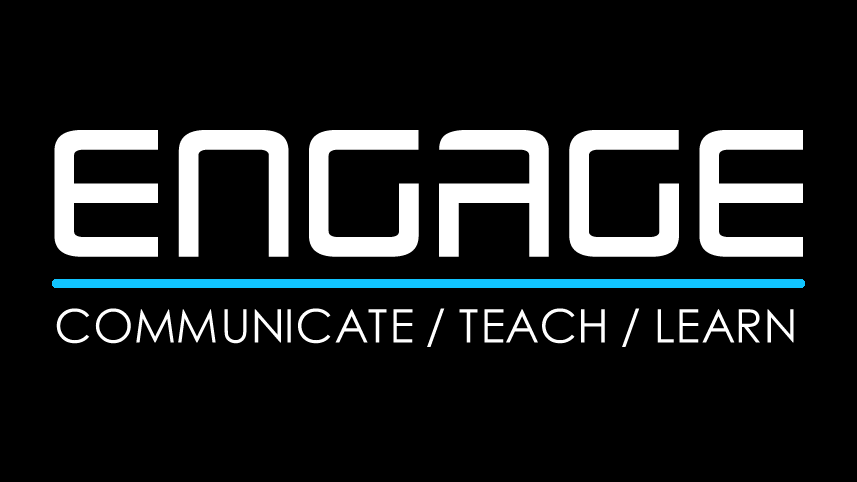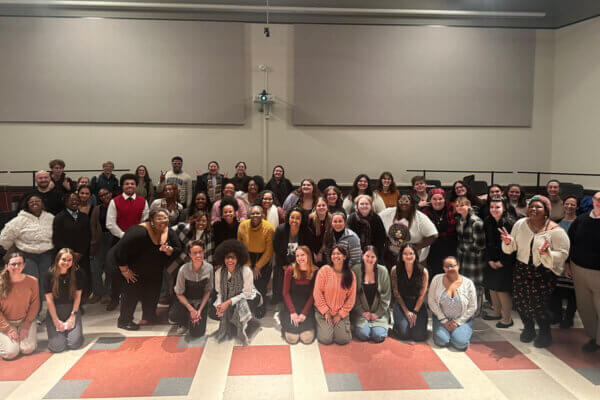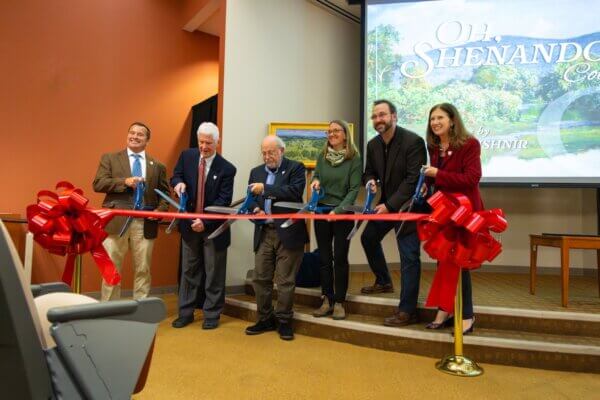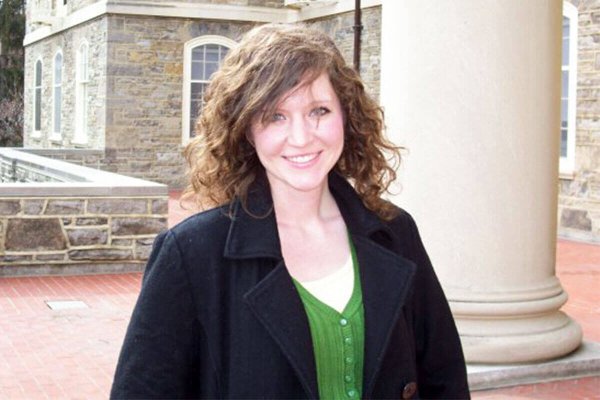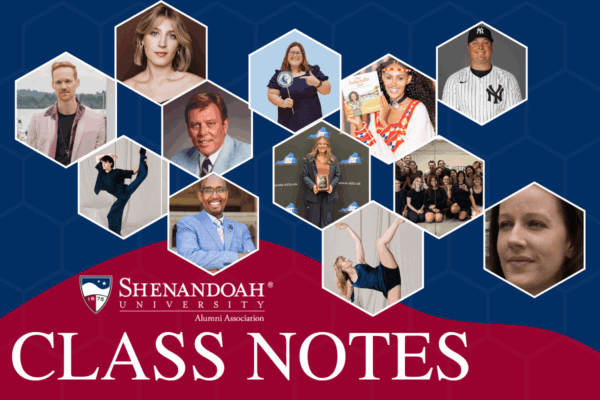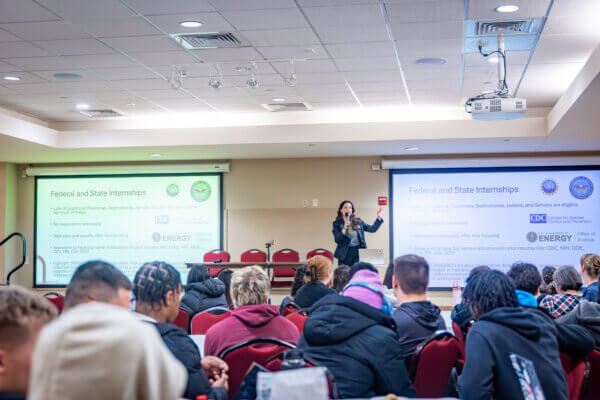Exploring A New Academic Dimension
First in Virginia to offer Bachelors Degrees in Virtual Reality (VR)
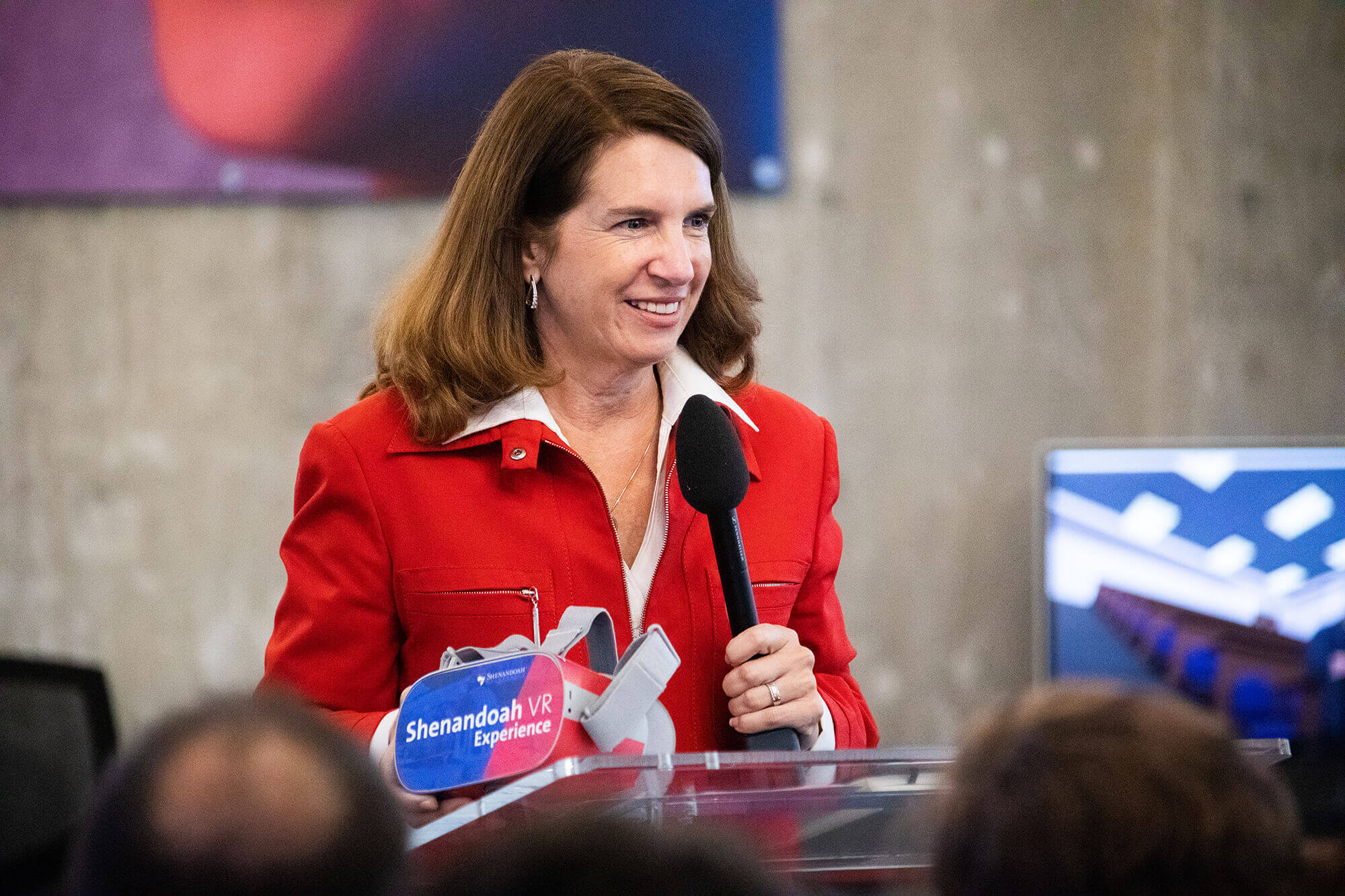
Shenandoah University is taking a global leap in experiential learning with the rollout of two new virtual reality degrees and an exciting partnership with a leading creator in virtual reality education.
Shenandoah is the first higher education institution in Virginia to offer a Bachelor of Arts and a Bachelor of Science in virtual reality/augmented reality (AR/VR) design.
The major will roll out in fall 2019, but students can apply now and the university is currently accepting applications.
Bachelor of Arts in Virtual Reality Design
The Bachelor of Arts prepares students for careers producing content for emerging AR/VR and related disciplines. Students can choose from either the VR Media concentration or Digital Stages concentration. The VR Media concentration is designed for students who plan to specialize in 360-degree, AR and/or VR content production. The Digital Stages concentration is designed for students who are interested in 360-degree, AR and/or VR simulation and training experience design.
Bachelor of Science in Virtual Reality Design
The Bachelor of Science in Virtual Reality Design prepares students for careers as technical specialists and/or programmers in AR/VR or related fields. Coursework includes programming in Unity and other languages, VR software design, and digital image processing mathematics.
A minor and an undergraduate certificate in Virtual Reality Design are also offered.
The new virtual reality majors are terrific examples of Shenandoah’s ability to offer cutting-edge programs that integrate skills and knowledge across disciplines. By virtue of our strengths in theatre, media production and technology, we are uniquely positioned to give students hands-on experience in designing, creating and applying virtual reality experiences.”
Shenandoah University Provost Adrienne Bloss, Ph.D.
Apply Now to Study Virtual Reality Design
A Transatlantic Academic VR Collaboration
Students in the new AR/VR majors benefit from Shenandoah’s recent partnership with Immersive VR Education, a software company in Ireland that provides a platform called Engage, which helps educators build their own custom VR content.
Through Engage, Shenandoah students will build virtual worlds and scenes that create simulated life experiences. The result will be five-minute immersive training experiences for real-world clients. These training videos will aid businesses, law enforcement and emergency medical services in everything from suicide prevention to simulations for communicating with patients of dementia. Shenandoah students will not only build the virtual scenario, but they will also be able to star as role players in the experience.
Engage is going to move us so far beyond our brick and mortar here at Shenandoah. We’re going to have the ability to help companies and entities nationally. Rapid training and retraining of individuals is becoming essential. It’s important to be able to efficiently and cost-effectively train employees in the newest and best practices.”
Shenandoah Center for Immersive Learning (SCiL) Executive Director and Associate Professor of Theatre J.J. Ruscella, M.F.A.
Shenandoah joins a select few colleges and universities worldwide, including University of Oxford in England, in partnering with Immersive VR Education.
Immersive VR Education has won global acclaim for creating state-of-the-art virtual experiences, re-creating everything from the shipwreck and sinking of the Titanic to the 1969 Apollo 11 moon landing. It has also collaborated with the BBC on a project titled “1943: Berlin Blitz,” a World War II experience brought to life through VR. The company’s shares are traded on the London Stock Exchange and the Irish Stock Exchange.
We are always very careful entering into partnerships of this kind because we need to be sure that whoever we team up with has the same vision for the future of VR education as we do. However, the drive and innovation Shenandoah has shown for the future of its students was palpable from the minute they reached out to us and we knew immediately this University and its students were a perfect fit for what our company has to offer.”
David Whelan | CEO and Co-founder of Immersive VR Education
Whelan also spoke of their dedication to transforming the delivery methods of education and corporate training by utilizing VR technologies to deliver fully immersive virtual learning experiences.
It is a powerful virtual reality collaboration and creation tool. It allows educators to host meetings, classes, private tutorials, training sessions and presentations with people from all over the world participating in a safe, virtual, multi-user environment. It is designed as a complementary tool to enhance classroom teaching, or as a standalone tool providing distance learners with access and opportunities to connect at a collegial level with their fellow students. Our ENGAGE platform aims to fully immerse the user into their learning experience, in order to increase learning retention and engagement. It will allow people to receive the best education, from the best educators from around the world, all from the comfort of their own home using virtual reality.”
David Whelan | CEO and Co-founder of Immersive VR Education
The Growing Virtual Reality Job Marketplace
According to Statista, the AR/VR market size worldwide is expected to grow to $209 billion by 2022. The worldwide economic impact of VR/AR technologies is forecast to be as high as $29.5 billion in 2020, according to Statista. In 2016, it was $3.1 billion.
The starting salary in the VR field for college graduates is between $75,000 and $80,000, with the top end around $200,000, according to Business News Daily. Google, Facebook, Snap (Snapchat), NVIDIA and HTC are large employers of graduates with virtual reality degrees or experience.
Graduates of Shenandoah’s virtual reality majors can choose jobs in:
- game programming, architecture, engineering and construction, which will use VR for 3D design
- simulation training scenarios for doctors and first aid responders
- safety training for the military/law enforcement
- travel industry advertising tourist locations and experiences to consumers
- producing immersive promotional material for businesses, such as real estate
- education, where teachers can take students to the past, remote places or uninhabitable environments through VR
Creating Human Connectivity Through Virtual Reality
The Shenandoah Center for Immersive Learning recently unveiled a virtual reality lab space in the Health & Life Sciences Building at the Winchester campus.
Whereas other schools’ VR programs focus on computer science, with a heavy emphasis on scanning and mapping, Shenandoah is exploring more of the human element within VR by tapping into the power of storytelling and emotion. One of the ways the school does this is by using Shenandoah Conservatory students to act as role players for virtual reality videos.
Where other programs focus on the connection of human to artificial intelligence, our program focuses on human-to-human connectivity. We’re incorporating trained role players into the virtual space in order to facilitate dynamic experiences.”
For example, SCiL has recreated a 1960s Civil Rights-era lunch counter sit-in and the trial of pre-Civil War abolitionist John Brown using 360-degree VR video and in collaboration with not only acting students, but also the university’s history department and outside organizations.
SCiL will also undertake an exciting fully immersive VR project this spring. Through the Immersive VR Education partnership, students will build a virtual Independence Hall. Shenandoah history students and debate team members will then become avatars of the Founding Fathers to debate on a virtual stage within a re-creation of the 1787 Constitutional Convention.
SCiL students also participate in live simulations, with no virtual or augmented reality involved. These live simulations train military personnel, medics and political officials—from those in the United Nations, to the State Department, and aid organizations like UNICEF—on how to respond during a crisis. Simulations can include anything from students posing as militia and taking an ambassador hostage, to staging an international car crash. Training simulations are acted out in the local area and involve Shenandoah students and area actors.
